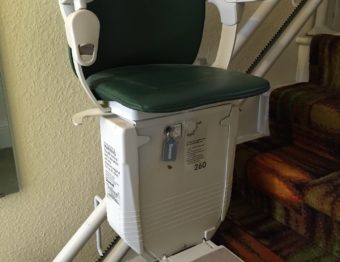
As your teen reaches the 11th and 12th grade, there is usually one thing on your mind: college. And, it seems like there isn’t any better time than the present to prepare your teen for their life after high school. In fact, preparation should start in the ninth grade or sooner.
Time flies by quickly, and it’s much better to be over-prepared than to be under-prepared. Before to college acceptance, teens will need to learn how to pass the many academic tests they will face.
In fact, test taking is a skill in and of itself. Then, there is the need for survival skills since they won’t be living at home any longer. Ready for some college-bound tips? Continue reading to learn more.
Help them figure out what they want to do
Job opportunities will vary depending on what type of college your child wishes to attend. For instance, there are the community, junior and technical colleges, and then, there are the four-year universities. Since college costs can add up fast, it is essential to figure out where to go that will most benefit their dream job.
So, do some research on the courses and educational requirements for specific careers. If your child wants to keep their options open, then choose a four-year college with a range of degree programs.
Prepare for academic and mental resiliency
Going to college is a lot different than going to high school or junior high. In college, you need to have the discipline to attend classes, to study and to complete assignments on time. Parents won’t be around to nudge children to do their homework anymore.
So, if kids don’t have academic and mental resiliency, they can fail at college even if they’ve had a successful high school career. Plus, they will have to learn how to survive without parents. The college dorm scenario is sort of an incubator towards the next step, which is real life.
One option for developing academic and mental resiliency is to attend boarding school, which is also a college prep school. Almost every boarding school requires students to adapt to and overcome obstacles, to develop leadership skills and to convey responsibility. This is the perfect training ground for college life and a working life afterward.
The sooner children can learn to become successes, on their own accord, the stronger they will be. Some college prep schools even provide valuable experiential learning which revolves around incorporating curricular goals that are infused with consequential and real-life experiences.
Teach them about finances
Another potential issue in college is the opportunity to overspend. Once teens get to college, they are automatically bombarded with credit offers–which, many take because they want to buy the things they desire. The problem is once they graduate, they can become so mired in credit card debt that they don’t enjoy adulthood; they feel shackled to their jobs.
Or, they have to choose a job they don’t want just to ensure they can pay off their credit card debt. So, now is the time to teach them financial literacy, as well as the many issues associated with a credit card. If your child needs a credit card, then teach them the significance of paying off the balance each month and to only use the card in emergencies.
Practice real-life skills now
In college, students need to understand how to cope without their parents. It’s time to let them fly out of the nest. To do so successfully, they should learn real-life skills such as cleaning, doing the laundry, cooking and effective time management.
It’s also important to teach them about the value of healthy eating and getting enough rest. In college, it’s all too tempting to eat mountains of pizza and to stay up all night with your friends. But, that lifestyle will cause burn out rather quickly. If they can learn real-life skills and healthy eating now, the responsibilities of college will be a breeze.
Final thought
College is an essential step towards leading a fulfilling life and accepting a rewarding career. You don’t want them to enter college in a state of shock, begging to come home. As a result, well-rounded preparation should start as soon as possible.





